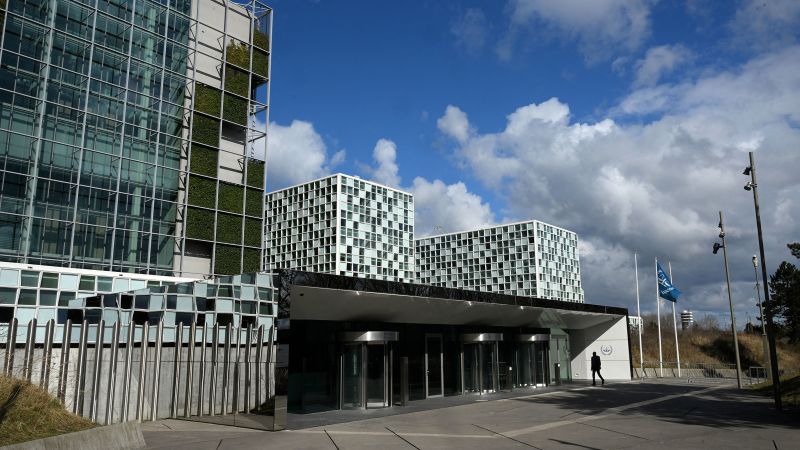Education
Trump Administration Expands Sanctions Against ICC Officials

The Trump administration has intensified its opposition to the International Criminal Court (ICC) by imposing sanctions on four additional court officials. This decision, announced on Wednesday, targets individuals involved in investigations related to alleged war crimes by Israel and the United States.
Secretary of State Marco Rubio confirmed that the sanctions were placed on Kimberly Prost of Canada, Nicolas Guillou of France, Nazhat Shameem Khan of Fiji, and Mame Mandiaye Niang of Senegal. The State Department’s statement indicated these sanctions are a response to their roles in the ICC’s efforts to “investigate, arrest, detain, or prosecute nationals of the United States or Israel, without the consent of either nation.”
These latest sanctions fall under an executive order issued by Donald Trump in February, empowering the administration to take punitive actions against ICC personnel deemed to be undermining U.S. interests and those of its allies. The order has previously led to sanctions against the ICC’s chief prosecutor, Karim Khan, and four ICC judges.
Details of the Sanctions
According to a fact sheet from the State Department, Prost, an ICC judge, is specifically cited for her ruling that permitted an investigation into U.S. personnel in Afghanistan. Similarly, Guillou is designated for supporting the issuance of arrest warrants for Israeli Prime Minister Benjamin Netanyahu and former Minister of Defense Yoav Gallant.
The sanctions also target Deputy Prosecutors Shameem Khan and Niang, who have been identified as continuing to support what the U.S. government describes as illegitimate ICC actions against Israel. This includes their roles in upholding arrest warrants for Netanyahu and Gallant, which were issued in November 2024 for alleged war crimes and crimes against humanity.
Trump’s earlier executive order, signed in 2020 during his first term, also authorized sanctions and visa restrictions against ICC members. This action followed the ICC’s decision to investigate alleged war crimes committed in Afghanistan by both U.S. and Afghan forces, as well as claims against the Taliban.
The ongoing sanctions reflect a significant escalation in the U.S. government’s stance toward the ICC, which it views as overstepping its mandate. As tensions rise over the court’s investigations, the implications of these sanctions could further complicate international relations regarding accountability for war crimes and human rights violations.
-

 Technology5 months ago
Technology5 months agoDiscover the Top 10 Calorie Counting Apps of 2025
-

 Health2 months ago
Health2 months agoBella Hadid Shares Health Update After Treatment for Lyme Disease
-

 Health3 months ago
Health3 months agoErin Bates Shares Recovery Update Following Sepsis Complications
-

 Technology4 months ago
Technology4 months agoDiscover How to Reverse Image Search Using ChatGPT Effortlessly
-

 Technology1 month ago
Technology1 month agoDiscover 2025’s Top GPUs for Exceptional 4K Gaming Performance
-

 Technology2 months ago
Technology2 months agoElectric Moto Influencer Surronster Arrested in Tijuana
-

 Technology5 months ago
Technology5 months agoMeta Initiates $60B AI Data Center Expansion, Starting in Ohio
-

 Technology5 months ago
Technology5 months agoRecovering a Suspended TikTok Account: A Step-by-Step Guide
-

 Health4 months ago
Health4 months agoTested: Rab Firewall Mountain Jacket Survives Harsh Conditions
-

 Lifestyle5 months ago
Lifestyle5 months agoBelton Family Reunites After Daughter Survives Hill Country Floods
-

 Technology4 months ago
Technology4 months agoHarmonic Launches AI Chatbot App to Transform Mathematical Reasoning
-

 Technology3 months ago
Technology3 months agoUncovering the Top Five Most Challenging Motorcycles to Ride



















